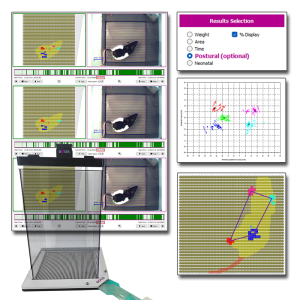Authors
MK Kaneva, MM Muley, E Krustev et al
Lab
The London School of Medicine, Queen Mary University of London, London, UK
Journal
FASEB Journal
Abstract
While new treatments have been developed to control joint disease in rheumatoid arthritis, they are partially effective and do not promote structural repair of cartilage. Following an initial identification of alpha-1-Antitrypsin (AAT) during the resolution phase of acute inflammation, we report here the properties of this protein in the context of cartilage protection, joint inflammation, and associated pain behavior. Intra-articular and systemic administration of AAT reversed joint inflammation, nociception, and cartilage degradation in the KBxN serum and neutrophil elastase models of arthritis. Ex vivo analyses of arthritic joints revealed that AAT promoted transcription of col2a1, acan, and sox9 and downregulated mmp13 and adamts5 gene expression. In vitro studies using human chondrocytes revealed that SERPINA1 transfection and rAAT protein promoted chondrogenic differentiation through activa tion of PKA-dependent CREB signaling and inhibition of Wnt/beta-catenin pathways. Thus, AAT is endowed with anti-inflammatory, analgesic, and chondroprotective properties that are partially inter-related. We propose that AAT could be developed for new therapeutic strategies to reduce arthritic pain and repair damaged cartilage.
BIOSEB Instruments Used
Dynamic Weight Bearing 2.0 (BIO-DWB-DUAL)
Keywords/Topics
Arthritis & Osteoarthritis
Source :
https://faseb.onlinelibrary.wiley.com/doi/pdfdirect/10.1096/fj.202001801R

 Pain - Thermal Allodynia / Hyperalgesia
Pain - Thermal Allodynia / Hyperalgesia Pain - Spontaneous Pain - Postural Deficit
Pain - Spontaneous Pain - Postural Deficit Pain - Mechanical Allodynia / Hyperalgesia
Pain - Mechanical Allodynia / Hyperalgesia Learning/Memory - Attention - Addiction
Learning/Memory - Attention - Addiction Physiology & Respiratory Research
Physiology & Respiratory Research











![Dynamic Weight Bearing 2.0 – Postural Module [Add-on]](https://bioseb.com/733-home_default/dynamic-weight-bearing-20-add-on-postural-module.jpg)
























 Pain
Pain Central Nervous System (CNS)
Central Nervous System (CNS) Neurodegeneration
Neurodegeneration Sensory system
Sensory system Motor control
Motor control Mood Disorders
Mood Disorders Other disorders
Other disorders Muscular system
Muscular system Joints
Joints Metabolism
Metabolism Cross-disciplinary subjects
Cross-disciplinary subjects CONFERENCES & MEETINGS
CONFERENCES & MEETINGS 
